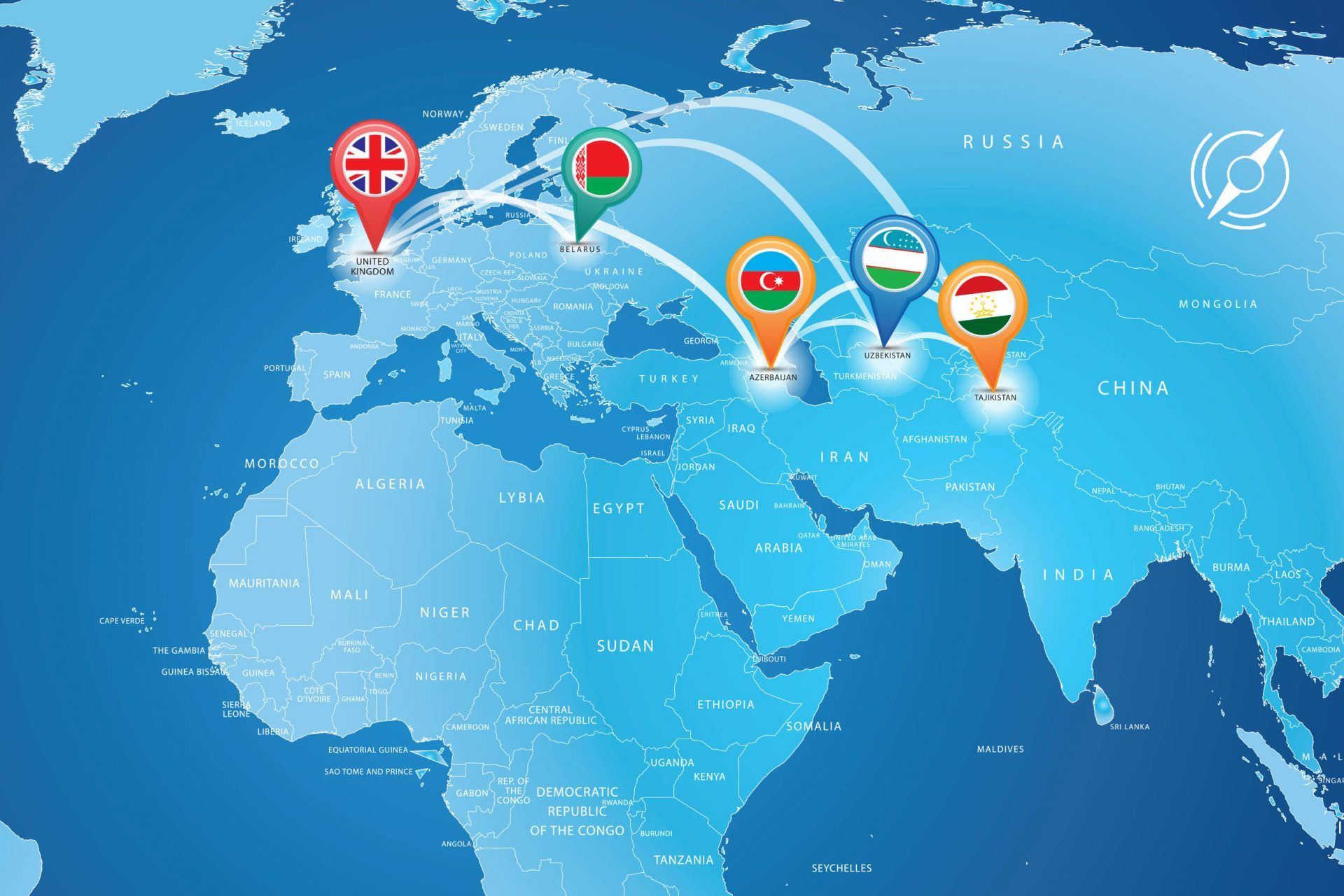Nurulla–Khodzhaeva, Nargis (2021) ‘Hamsoya’s Resilience’ available here
“If at first the idea is not absurd, then there is no hope for it.”
― Albert Einstein
Taking into account the state’s illusion of clarity on virus, it is easier to announce the end of resilience because of uncertainty of Science. However, in such circumstances, these two signposts of our (post)pandemic time, uncertainty and the state’s illusion, point to the current of “absurd”.
If you agree to set on cast, can we look on the issue from the other side? To be exact, from Sufi (Al Ghazali) and modern philosophy (Derrida and Foucault).
Coutu, Diane (2020) ‘How Resilience Works’ available here
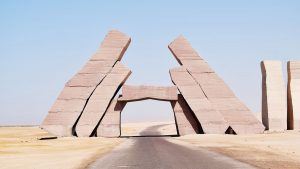
Chandler, David (2020) ‘Coronavirus and the end of resilience’, March 25, available here

Korosteleva, E. & Petrova, I. (2020) ‘Resilience is dead. Long live resilience?’ 9 April, originally published with LSE/Hertie Dahrendorf Forum, available here. Its reprinted versions are also available as commentary on the Istituto Affari Internazionali (IAI) page and PDF
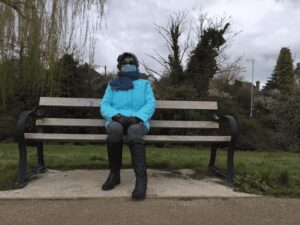
Reflections about the ongoing Coronavirus pandemic and its implications for Europe and the world engendered the view that ‘resilience is dead’. In this post, Elena Korosteleva & Irina Petrova argue that what we observe today is the demise of the ‘neo-liberal’ framing of resilience. Meanwhile, the resilience of human grit lives on.
Paikin, Z. (2020) ‘EU-Russia Relations and the Crisis in Belarus: toward a more “Geopolitical” Europe?’, Foundation our la Recherche Strategique, available here
Korosteleva, E. (2020) ‘A changing Belarus? The country in the eye of the storm’, 5 August under the COVI-19 Foreign & Security Policies Research Cycles 2017-20 of the Dahrendorf Forum, originally published here
Ahead of the 9 August election, is Belarus finally ready for a change? Elena Korosteleva shares her reflections about Minsk, political campaigns and the possibilities in the upcoming election.
Weibezahl, T. (2020) ‘European Defence: Britain’s role after Covid-19 and BREXIT’, No. 17, 29 July, available here

Defence and security could – under normal circumstances – have been the areas less effected by the British exit from the EU. Brexit did not alter geography, leaving the UK as a power of great importance to European security and defence. Also, every security and defence challenge for EU member states remains strategically important to the United Kingdom. Therefore, the challenge would have been to find pragmatic solutions and policies that enable the EU member states and the UK to work together for the security of their citizens. This looks somewhat different now, no matter from which point of view we assess the situation.
Murphy, A. (2020) ‘UK in the shadow of BREXIT and COVID-19’, No.16, 27 July, available here

The UK was facing testing geopolitical circumstances even before the outbreak of CV19. The UK is seeking to shape its new role outside of the EU and this has coincided with fresh dsputes with Russia, a growing dispute between China and the US, and challenges in the UK’s ’special relationship’ with the US, alongside the global CV19 pandemic. These factors alone would suggest the UK chart a nuanced foreign policy, appeasing new trade partners and assuaging political tensions, however this has not been the case. The paper examines geopolitical ramifications for the UK during and after the global pandemic.
Galbreth, J., and A. Azmanova (2020) ’There are parties to blame’ (in Russian), 25 July, available here
The pandemic may be presented as a unpredictable emergency. Yet, the global recession it has caused, is intimately linked to the precarious nature of capitalism, its ideological prevalence and rigid political leadership. While spontaneous in nature, the pandemic has its natural causes and real culprits who contributed to its ‘unexpected’ arrival, and consequences.
Galbreth, J. & A. Azmanova (2020) ‘Yes, someone is to blame’, Social Europe, 23 June, originally published here

 A pandemic may be represented as a ’natural disaster’. A global depression is however the product of ideology and powerful political actors.
A pandemic may be represented as a ’natural disaster’. A global depression is however the product of ideology and powerful political actors.
Faizullaev, Alisher (2020) Diplomacy’s Response to the Coronavirus, 18 & 28 May, originally published with ‘The Hague Journal of Diplomacy’ Blog, Leiden University. Part 1 & Part 2
 The coronavirus outbreak has demonstrated the strengths and weaknesses of modern diplomacy. In this two-part series of blog posts, I will attempt to analyze how diplomats grappled with the coronavirus pandemic and how international diplomacy can best prepare to meet similar challenges in the future. This blog post focuses on the practice of diplomacy during the COVID-19 outbreak. The second post focuses on diplomacy and its challenges in post-corona times. Specifically, the blog post argues that diplomats will face a range of challenges following the Covid-19 pandemic including the need to strengthen the multilateral system, facilitate collaborations to find a vaccine and resolve diplomatic disputes arising from new travel restrictions.
The coronavirus outbreak has demonstrated the strengths and weaknesses of modern diplomacy. In this two-part series of blog posts, I will attempt to analyze how diplomats grappled with the coronavirus pandemic and how international diplomacy can best prepare to meet similar challenges in the future. This blog post focuses on the practice of diplomacy during the COVID-19 outbreak. The second post focuses on diplomacy and its challenges in post-corona times. Specifically, the blog post argues that diplomats will face a range of challenges following the Covid-19 pandemic including the need to strengthen the multilateral system, facilitate collaborations to find a vaccine and resolve diplomatic disputes arising from new travel restrictions.
Bossuyt, F. (2020) ‘What Role for the EU in a Post-COVID-19 Central Asia: On the Way Out or Right Back In?’ 23 May, originally published with UNU-CRIS, available here.

Considering that the pandemic has been hitting Europe very hard and that the crisis has gravely undermined the basic dynamics that underpin European integration, it is very likely that the crisis will negatively affect not only the perception of the EU abroad, but also its actual impact in steering reform processes and promoting regional cooperation abroad, including in a region like Central Asia. How can the EU adapt its foreign policy towards Central Asia post-pandemic? The piece argues for rethinking and strengthening resilience in the EU’s foreign policy in the region.
Chan, L-H., Lee, P.K. (2020) ‘The World Health Organization must answer these hard questions in its coronavirus inquiry’, 20 May, available here
“If the World Health Organization (WHO) wants to maintain its legitimacy on the world stage, it must now answer some tough questions about the extent it has kowtowed to China during the coronavirus pandemic. It now has a chance to do so, after its members agreed to adopt a resolution for an inquiry into the global handling of the pandemic at a virtual meeting of its annual World Health Assembly on May 19. But there are still many other questions that need to be answered before it can restore its credibility”
Barotzoda, F. (2020) ‘Tajikistan and Coronavirus’, 13 May, available here
This paper offers an overview of the pandemic situation and government response to it in Tajikistan, which until recently has not had public scrutiny and official Action Plan to address the health crisis. The latter requires more than just financial injection on the part of government: it requires a collective action of resilience to protect both the frontline staff and the population at large.
Hussain, Z. (2020) ‘Fieldresearch in lockdown: revisiting slow science in the time of COVID-19’, 29 April, originally published by LSE blog, available here
As we re-frame our research questions and objectives to be reflective of the new difficulties’ communities face during COVID-19, how do we reimagine being in the field? Zahra Hussain, founder and director of Laajverd, looks at how we can revisit, rethink and rearticulate our positions as researchers, employ our work with care, and re-think our engagement with our research fields.
 Zahra Hussain is the Founder and Director of Laajverd, she leads the Academy for Democracy -Laajverd Visiting School project and is a Post-Doctoral Fellow on the GCRF Gender Justice and Security Hub. Zahra’s research engages with questions around cultural landscapes, at-risk heritages and the practices and patterns of everyday life in remote mountain villages in Pakistan. She tweets @ZahraHussain31. Zahra is a new GCRF COMPASS affiliate, and part to the new GCRF Cluster project AGRE, 2020/21 (with Durham and Kent)
Zahra Hussain is the Founder and Director of Laajverd, she leads the Academy for Democracy -Laajverd Visiting School project and is a Post-Doctoral Fellow on the GCRF Gender Justice and Security Hub. Zahra’s research engages with questions around cultural landscapes, at-risk heritages and the practices and patterns of everyday life in remote mountain villages in Pakistan. She tweets @ZahraHussain31. Zahra is a new GCRF COMPASS affiliate, and part to the new GCRF Cluster project AGRE, 2020/21 (with Durham and Kent)
Azmanova, A. (2020) ’The Nascent Paradigm Shift in the EU’, 28 April, originally published with Social Europe available here
Emergency action to enhance healthcare and unemployment insurance might signal a paradigm shift for the union from market integration to providing public goods.
 Amid warnings of the impending collapse of the European Union, in the face of member-states’ difficulties in adopting a collective response to the coronavirus pandemic and a strategy to finance the recovery, the European Commission has undertaken two initiatives which will be celebrated by some as an emergent federal government—and bemoaned by others, for the same reason.
Amid warnings of the impending collapse of the European Union, in the face of member-states’ difficulties in adopting a collective response to the coronavirus pandemic and a strategy to finance the recovery, the European Commission has undertaken two initiatives which will be celebrated by some as an emergent federal government—and bemoaned by others, for the same reason.
Lai-Ha Chan and P. Lee (2020) ‘Credibility Deficit: The WHO in the COVID-19 Pandemic’, 27 April, available here
Exactly a decade ago, one of us wrote a commentary on the WHO in light of the outbreaks of Severe Acute Respiratory Syndrome (SARS) and A/H1N1. It argued that the WHO had become the most powerful international organisation in the world. ‘Power’ is defined as the ability to perform and act effectively to get a desired outcome, in which legitimacy is the key (https://jech.bmj.com/content/64/2/97). As the global health organisation, the WHO advisories have proven to be remarkably influential during the SARS and the A/H1N1 outbreaks. A decade on, however, the WHO is now suffering a credibility deficit. One has to wonder why the reputation and credibility of the organisation is now open to dispute. This legitimacy crisis is attributable to three particular concerns over how the health organisation has handled the COVID-19 pandemic.
Azmanova, A. (2020) ‘Precarity, not inequality is what ails the 99%’, 27 April, originally published in Financial Times, available here and PDF version
Our predicament is that wealth has become the only apparent source of safety
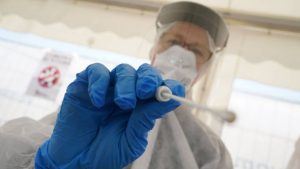
Merheim-Eyre, I. (2020) ‘COVID-19, Resilience and the Limits of Rationalist Universalism’, reprinted by E-IR on 21 April, available here
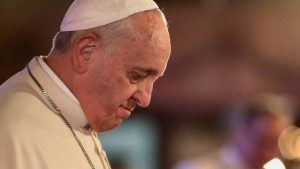
The COVID-19 pandemic laid bare the realities of humanity: our strengths and weaknesses, virtues and vices. Humans are, after all, all too human. So does this mean that our societies lack resilience to weather the current storm, or are we looking for resilience in the wrong places? And how can democratic societies strengthen their resilience to be able to face internal and external challenges?
Paikin, Z. (2020) ‘Canadian Foreign Policy in the Post-COVID World’, 20 April, originally published by GLOBALBRIEF, available here.
 For the past several years – if not decades – the international order has been situated in a period of transition. As such, the specific impact of the novel coronavirus on global politics remains largely to be determined. Nonetheless, it is possible to identify some early implications for Canadian foreign policy and international strategy.
For the past several years – if not decades – the international order has been situated in a period of transition. As such, the specific impact of the novel coronavirus on global politics remains largely to be determined. Nonetheless, it is possible to identify some early implications for Canadian foreign policy and international strategy.
Apostolidis, P & A. Azmanova (2020) ‘In a Pandemic, We’re more Precarious Than Ever’, 16 April, available here, originally published by Jacobin.
Precarity has been rising for decades but now, in a pandemic, job insecurity meets physical vulnerability in new and terrifying ways.
Sakwa, R. (2020) ‘Beyond Normality: coronavirus and state of transformation’, 14 April, originally published by the Valdai Club, available in Russian and English
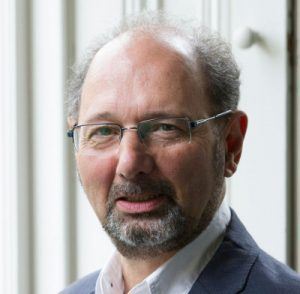 A crisis is a moment of reflection in the life of a community. The response to a challenge is as important as the summons itself. In the case of Covid-19, the crisis is the most profound in living memory. Like a neutron bomb, it destroys people but not the physical infrastructure. It prowls unseen, and the threat of contagion pushes people apart. No less important, it undermines accustomed models of normality, the ‘common sense’ of an era, and breaks boundaries that had hitherto been sacrosanct.
A crisis is a moment of reflection in the life of a community. The response to a challenge is as important as the summons itself. In the case of Covid-19, the crisis is the most profound in living memory. Like a neutron bomb, it destroys people but not the physical infrastructure. It prowls unseen, and the threat of contagion pushes people apart. No less important, it undermines accustomed models of normality, the ‘common sense’ of an era, and breaks boundaries that had hitherto been sacrosanct.
Turarbekova, R. (2020) ‘Global Challenges and the impact of coronavirus on politics: from modest examples of resilience by local communities to ineffective actions of global actors’, 11 April, available (in Russian) here.
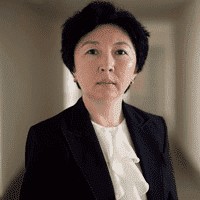 This short piece reflects on the inadequacies of national and global governance in the face of the pandemic; while giving heed to the local, modest and unflashy examples of resilience displayed by ordinary people, in support of each, in Belarus.
This short piece reflects on the inadequacies of national and global governance in the face of the pandemic; while giving heed to the local, modest and unflashy examples of resilience displayed by ordinary people, in support of each, in Belarus.
Roza Turarbekova is Associate Professor and Director of the Centre for Eurasian and European Studies at the Department of International Relations, BSU, and a member of GCRF COMPASS. She focuses on current issues of foreign policy of the countries of the Middle East and Central Asia, especially to the issues of Islamic factor in international relations. For more information see here: https://minskdialogue.by/en/team/experts/roza-turarbekova
Khasanov, U. (2020) ‘Some Aspects of the Central Asian Economic Development’, 10 April (in Korean) available here
Originally published by the EMERiCs – Emerging Countries Knowledge Information of the Korea Institute for International Economic Policy. English version available here
Galbraith, J. (2020) ’The Pandemic and capitalism: Will we learn from this crisis that our present precocity capitalism must be brought to an end?’ 8 April, available here. Originally published by Democracy: a Journal of Ideas.
n the crisis now upon us, the issue before the Anglo-American side is whether the reality of our situation will now sink in. Will we recognize, in time, the need to mobilize all our resources, to socialize our health system and keep the supply chains open until the virus can be contained? Will we realize that when this is done, life will not be what it was before, and that a vast reorganization of economy and society will be necessary? Or will the neoliberal ideologues in control succeed in squelching that debate—which they are trying to do, at this writing, by focusing on bailouts and stimulus in the belief that somehow the bubbles now bursting can be reinflated in a few months? Will we remain mired in illusions of growth, with or without equity and inclusion? Or will we now and finally displace those illusions, with a new wave that understands the nature of precarity capitalism and what must be done, as Albena Azmanova has so ably set forth in Capitalism on Edge.
Gromyko, A. (2020) ‘Coronavirus as a factor in world politics’, 8 April, originally published in the Vestnik of the Institute of Europe, Russian Academy of Sciences (in Russian), available here
 The article is dedicated to the impact of corona virus COVID-19 on international relations. The state of affairs in world politics before and after the start of the epidemic is explored. The author describes the reaction of different countries to the crisis, the instrumentalization of the pandemic for political purposes. The attention is drawn to the situation in the sphere of freedom of movement and to the role of a nation-state. The author looks into ideological and geopolitical di- mensions of the pandemic. One of the conclusions concerns the risks of heightened rivalry among major powers. It is demonstrated that the crisis is being used for anti-Russia propaganda. Also in the focus of the research are interpretations of USA – China competition by the Western expert com- munity in light of the pandemic. The author poses a question about the ability of political leaders to use the current situation for deconfliction and collective actions.
The article is dedicated to the impact of corona virus COVID-19 on international relations. The state of affairs in world politics before and after the start of the epidemic is explored. The author describes the reaction of different countries to the crisis, the instrumentalization of the pandemic for political purposes. The attention is drawn to the situation in the sphere of freedom of movement and to the role of a nation-state. The author looks into ideological and geopolitical di- mensions of the pandemic. One of the conclusions concerns the risks of heightened rivalry among major powers. It is demonstrated that the crisis is being used for anti-Russia propaganda. Also in the focus of the research are interpretations of USA – China competition by the Western expert com- munity in light of the pandemic. The author poses a question about the ability of political leaders to use the current situation for deconfliction and collective actions.
Alexey Gromyko is Сorresponding Member of RAS, Director of Institute of Europe RAS, Head of Chair of Theory and History of International Relations, Lobachevsky State University of Nizhny Novgorod. E-mail: alexey@gromyko.ru.
Umarov, A. (2020) ‘COVID-19: lessons for Central Asia and implications for the foreign policy’ in Russian and English, 6 April
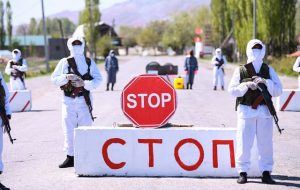
Azmanova, A.(2020) ‘Coronavirus: is this Snark in fact a Boojum? On the future of capitalism after the pandemic’, 4 April, available here. Originally published by Open Democracy.
Azmanova, A. (2020) ‘Our neoliberal war on the pandemic’, 3 April, available here. Originally published by the Institute for Human Sciences.
Zheng, Huawei (2020) ’Tough measures are taken as China tries to reopen its economy’, April 3, available here
Amongst the major global economies, China seems to be now in a better position to reopen its economy in a gradual and orderly way. The national focus has been shifted towards dealing with the imported cases (which accounts for the majority of the new cases now in China), as the overseas travellers are coming back from the areas hit by this pandemic. This piece looks at the measures China takes to address the latter problem, which may be a good model to follow by Europe and the US in the future when they turn the corner in handling the global outbreak.
XU Qinhua (2020) ‘Great changes in global energy patterns cause the collapse of international oil prices’ 3 April, available here

In this reflection piece Professor Xu from Renmin University (China) explores the implications of the fallen crude oil prices, pushed by the COVID-19 global pandemic. While discussing the crisis’s gloomy implications for the health of global economy, she notes that the current crisis could also serve as a ‘good crisis’, to force us to rethink our relationship with nature and find better and more sustainable ways to live with the Anthropocene.
XU Qinhua is Professor at School of International Studies, vice dean at National Academy of Development and Strategy, and director at Center for International Energy and Environment Strategy Studies, Renmin University of China. She is also GCRF COMPASS great friend and colleague.
Preiherman, Y. (2020) ‘Pandemic and the East European jungles’, Global Brief, 27 March [In Russian], originally published by Global Brief.
 Pandemic observations often associate the crisis with a jungle – where the fittest, the strongest and of course, the luckiest would survive within a system of states, when one transposes it to politics. Perhaps, survival is too strong a word, however it may still be fitting to describe the post-pandemic situation, which will inevitably produce differentiation. Some states will come out of the crisis considerably affected, and need to to rethink their coping strategies, both internally and externally.
Pandemic observations often associate the crisis with a jungle – where the fittest, the strongest and of course, the luckiest would survive within a system of states, when one transposes it to politics. Perhaps, survival is too strong a word, however it may still be fitting to describe the post-pandemic situation, which will inevitably produce differentiation. Some states will come out of the crisis considerably affected, and need to to rethink their coping strategies, both internally and externally.
Bargues, P. (2020) ‘ A planetary retreat to contain the coronavirus: Resilience in times of catastrophe’, March 26, available here

In this post, Pol Bargués examines the social consequences of the ‘planetary retreat’ that the world is undertaking to combat the Coronavirus. Please also see this video by Albert Kuhn and Pol Bargués that illustrates the article. To read more of Pol’s work on resilience please see here
Preiherman, Y. (2020) ‘COVID-19 that Accelerates the Geopolitical Time’, 23 March, Commentary 43, available here. Originally published by Minsk Dialogue Council on International Relations.
Ferreira, Carles (2020) ‘Covid-19: …and when they woke up, the nation-state was still there’, March 17, available here
Tocci, N. (2020) ‘International Order and the European Project in Times of COVID-19’, 3 March, originally published and available here
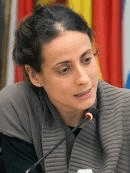 COVID19, the disease caused by the new coronavirus that has rapidly turned into a pandemic, could be the proverbial straw that breaks the camel’s back. The international liberal order, as well as the European Union within it, has been in trouble for years now. Challenged from the outside by defiantly illiberal powers like China and Russia, as much as from within as Donald Trump disavowed the order that his country had established and sustained, the rules, norms and institutions that have governed international society for over seventy years have languished. The EU, for its part, has been shaken by the successive Eurozone and migration crises, while its surrounding regions were spiralling into conflict and outright collapse. COVID19 could be the final nail in the coffin of a rules-based international order and the European project within it. But it could also give birth to a new phoenix rising from its ashes. Much will depend on how Europe, both internally and internationally, will confront this epochal crisis.
COVID19, the disease caused by the new coronavirus that has rapidly turned into a pandemic, could be the proverbial straw that breaks the camel’s back. The international liberal order, as well as the European Union within it, has been in trouble for years now. Challenged from the outside by defiantly illiberal powers like China and Russia, as much as from within as Donald Trump disavowed the order that his country had established and sustained, the rules, norms and institutions that have governed international society for over seventy years have languished. The EU, for its part, has been shaken by the successive Eurozone and migration crises, while its surrounding regions were spiralling into conflict and outright collapse. COVID19 could be the final nail in the coffin of a rules-based international order and the European project within it. But it could also give birth to a new phoenix rising from its ashes. Much will depend on how Europe, both internally and internationally, will confront this epochal crisis.
Nathalie Tocci is Director of the Istituto Affari Internazionali, Honorary Professor at the University of Tübingen, and member of the GCRF COMPASS Advisory Board. She has been Special Adviser to EU HRVP, on behalf of whom she wrote the European Global Strategy and worked on its implementation, notably in the field of security and defence.
